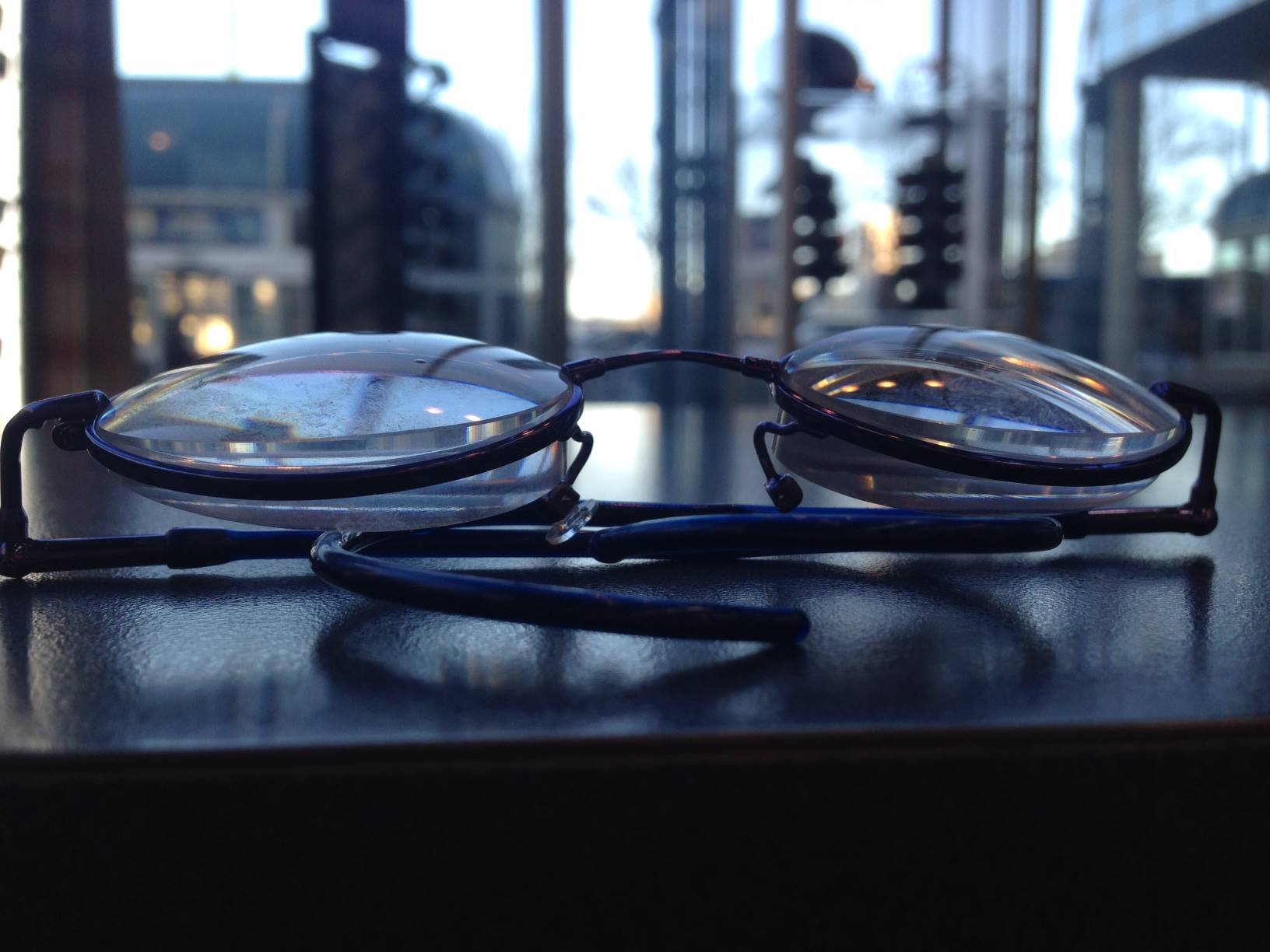Beware of Buying Online Glasses
It’s not JUST about the prescription! A lot of different parameters go into designing the right pair of glasses for you.
See below for an example of two different glasses made with the same prescription – one was done online, and it came out 9 mm thicker, and the pupillary distances were off. This can cause blurry vision, eyestrain, and potentially headaches. Our staff choose the right kind of material and curvature based on your prescription and your needs, as well as making accurate measurements for the correct fit of your chosen frame. It is absolutely essential to see it on your face in person.
A recent study showed that a quarter of glasses ordered online come back with some sort of error – wrong prescription, wrong lenses, or not meeting safety requirements. There are SO many factors that go into your glasses…. the prescription is the easiest part, and even that may be done improperly!
Be very wary of buying online!!
(pictures from College of Opticians of Alberta)
“Attached are two pictures of glasses made for the same patient.
One was made at PFM in surfaced 1.5 plastic. The other was ordered by the patient from Zenni Optical online.
The ones from Zenni … are also approximately 9mm thicker, the rx is slightly off and the PD is off by about 5mm.”







